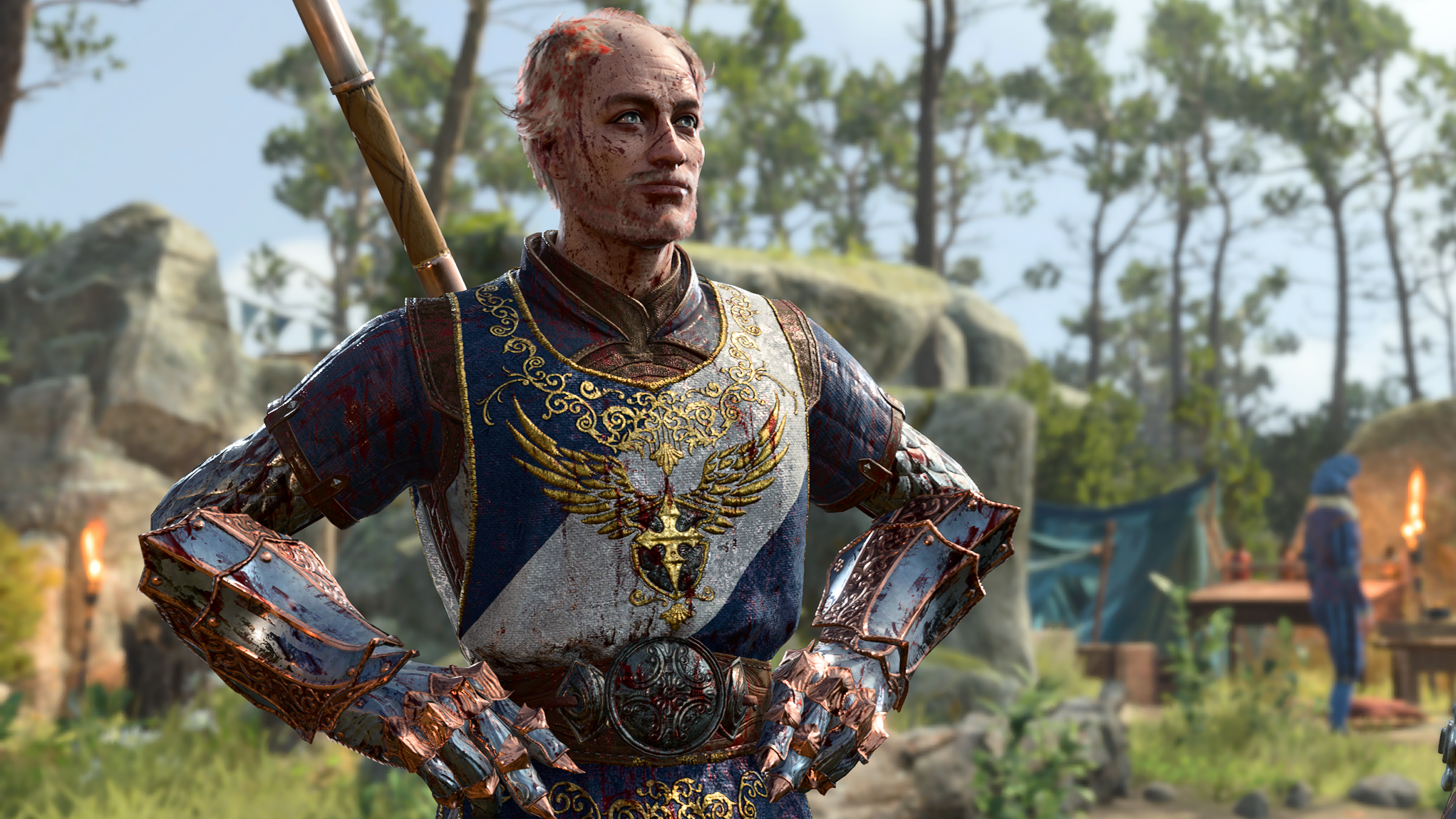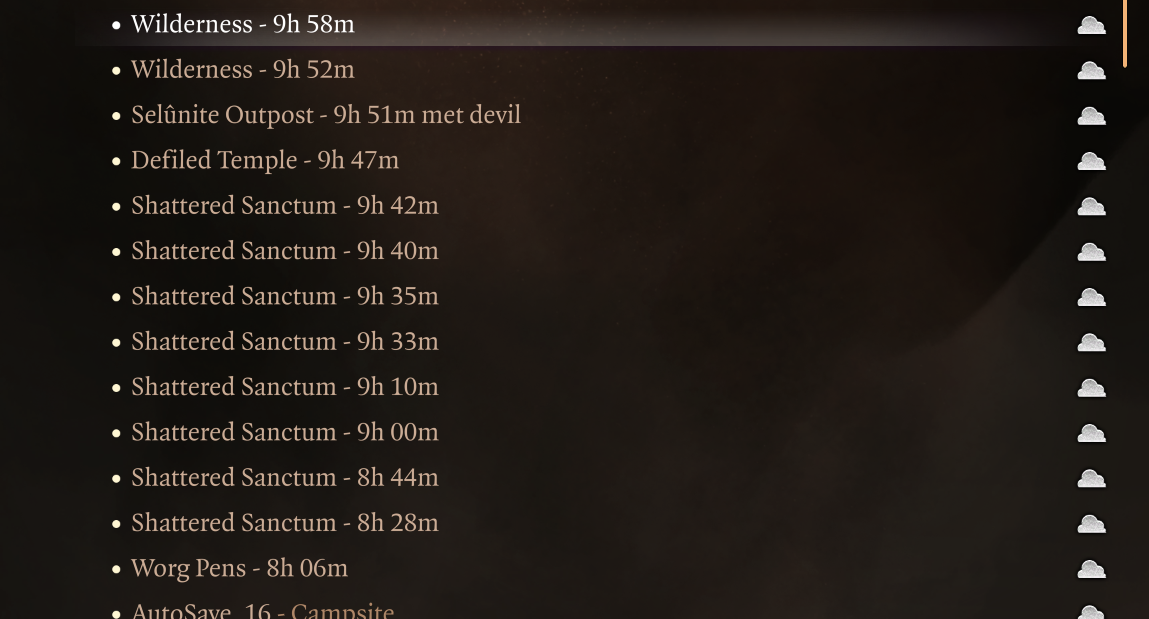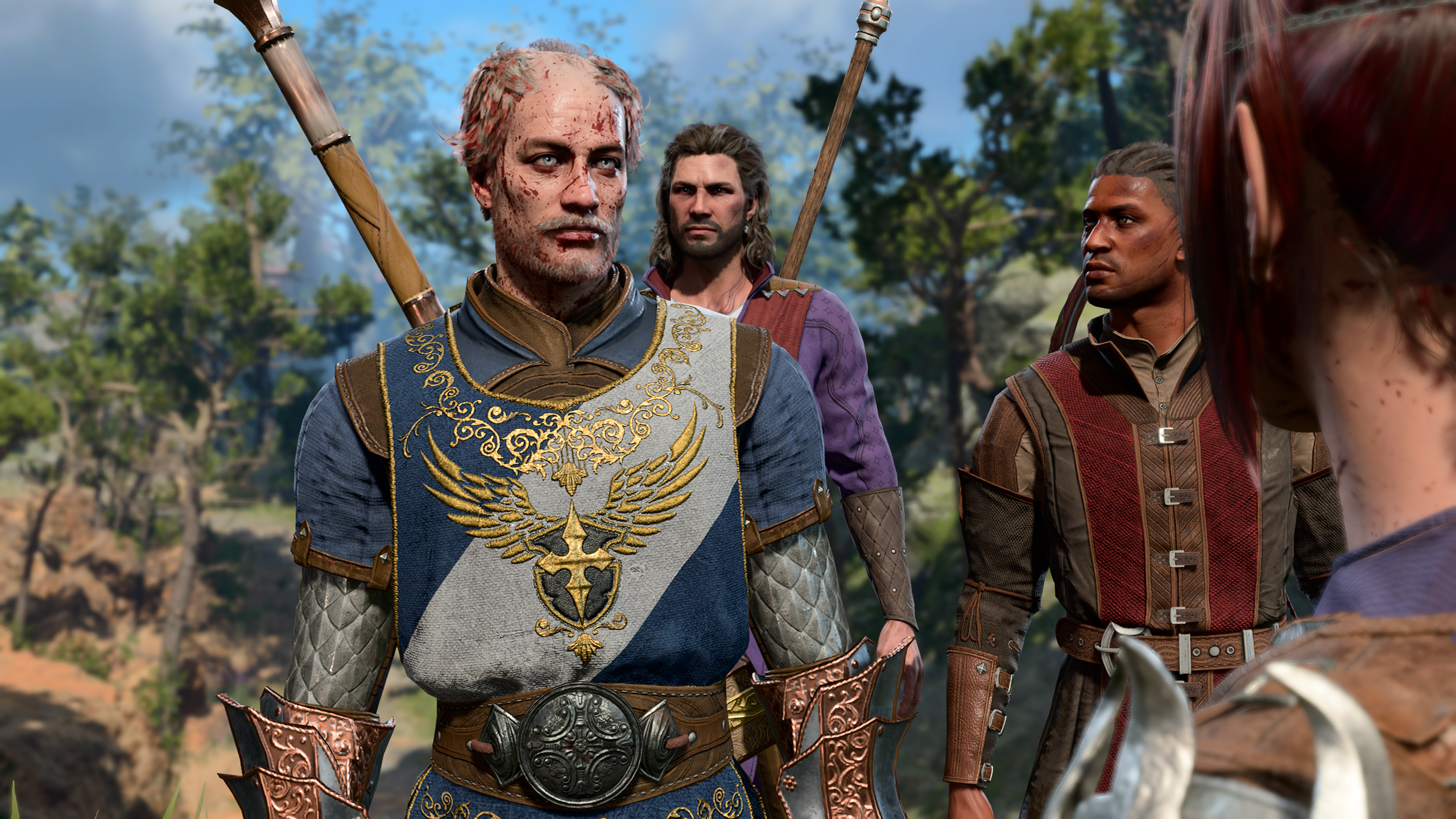
People who play RPGs like to say that RPGs are more fun when you accept the consequences of your actions. Don't load a save file just because you failed a persuasion check and got into a fight. Let your failures guide the story! Accept consequences! Before starting Baldur's Gate 3, I told myself I was going to keep to that most righteous path. No save scumming, I declared.
Now look at my ass:

At first, I excused my habit as prudence. This is a Larian sandbox RPG. It contains bugs, it's crashed a few times, and misclicks can lead to mass murder. Saving after every combat is actually a way to preserve an outcome in case of technical failure. It isn't "save scumming," which originally referred to backing up roguelike saves to escape permadeath, and now refers generally to saving before taking risks so that, if you don't like what happens, you can rewind time and alter your choices or try to get better dice rolls. I wasn't doing that. Except, wait a minute—how did saying that cause that to happen? I didn't mean that at all! Maybe just this one time, then…
10 hours later, and yeah, I am eternally a Call of Duty player who just fired one bullet: ready to reload. I save before every risky move I make and I abuse the hell out of those saves. I'm still a little conflicted about it, but how can I resist fixing things when it's so easy?
I suspect that just about everyone who plays Baldur's Gate 3 will experience this self-impeachment to some degree, so I've decided to use my authority (writing on a website) to just go ahead and pardon all of us. Let it be known:
I hereby absolve all past, present, and future Baldur's Gate 3 save scummers of their RPG crimes. You may save your game free of guilt.
To reload or not to reload

As I get used to the quirks of Baldur's Gate 3's attempt to emulate a D&D tabletop campaign (which is a lot of fun, by the way), I've started to loosen up and let my hapless human paladin face more consequences. I didn't really want to kill the number of goblins I killed last night, but that's the way the story went, and I'm sticking to it.
I still sneaked in a reload during that unexpected carnage, though. Once I'd committed myself to violence, I wanted to finish off the last of the group without taking a long rest. It just didn't seem sensible that my party would rampage through a goblin outpost, break for dinner and eight hours of sleep, and then reappear in the middle of the viscera in the morning to finish the job.
Unfortunately, my party's raggedness, some really bad rolls, and the discovery that a seemingly immaterial object blocked movement ended up resulting in catastrophe during the final boss fight. I could have fled combat and tried to keep going, but of course I just reloaded and did the fight again. It was easy the second time, which made me confident that reloading had been the right narrative choice. It didn't make sense that my party would suffer multiple deaths in what was, in the end, not all that harrowing a fight.
Please don't ask me to repeat that aloud, though: I don't want to hear how ridiculous my justification actually sounds. Trying to find "sense" in rolls of the dice...

There are times, though, when I really think you have to save scum a little to get the most out of a game like Baldur's Gate 3.
It's more fun when you accept your consequences and trust the dice. Except when the dice are wrong.
There are always going to be misunderstandings and miscommunications between you and the game. With a human DM, you can talk it out, but I can't ask Baldur's Gate 3, "Hey, if I cast Silence on my party, will it prevent them from hearing a harpy's siren song, or does it not work like that?" I just have to try it and find out, and then reload my save after learning that it definitely does not work like that. I could just accept the consequences of my experimentation and work them into my story as the cost of learning a lesson, but without the freedom to reload I think I'd probably just wind up playing so cautiously that I'd get bored.
Larian knows how we are. You can quicksave and reload all you want in Baldur's Gate 3, and the 100 gold fee to respec your character or a companion is not a high barrier, making it easy to experiment with classes and builds. What Larian says, however, is that "it's important to remember that there are truly no wrong answers, but plenty of consequences."
"In the long term, the story will be defined by your choices, and the consequences of your actions," the studio wrote in a recent Steam post. "You will always have choices to make. Trust the dice, it'll always show you a good time!"
So I think we all agree here: RPGs are more fun when you accept the consequences of your actions and trust the dice. Except when the dice are wrong.







